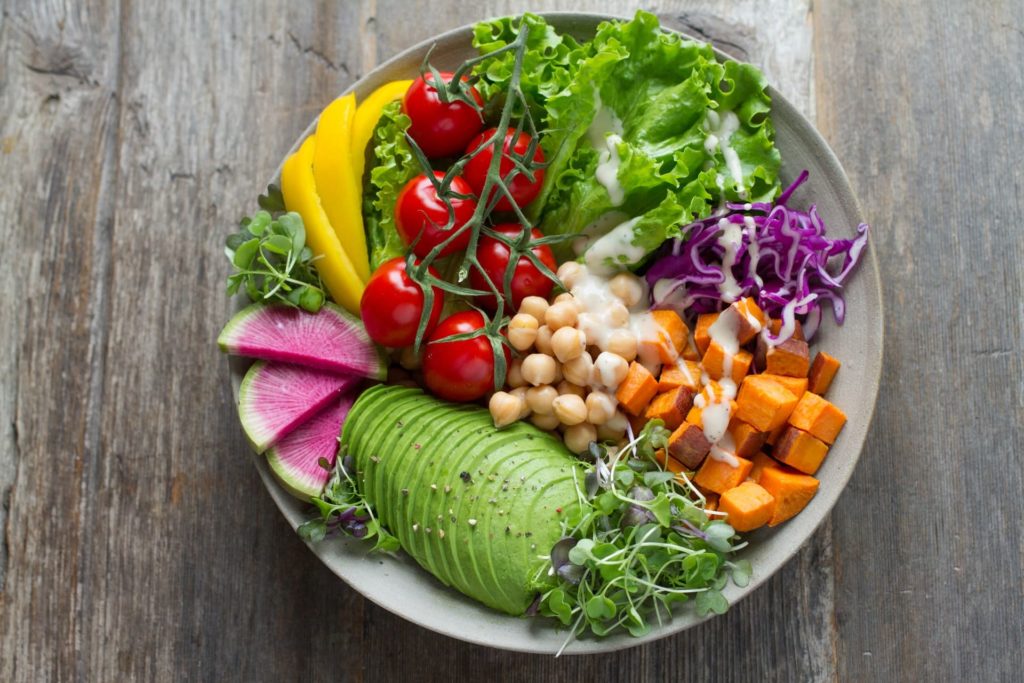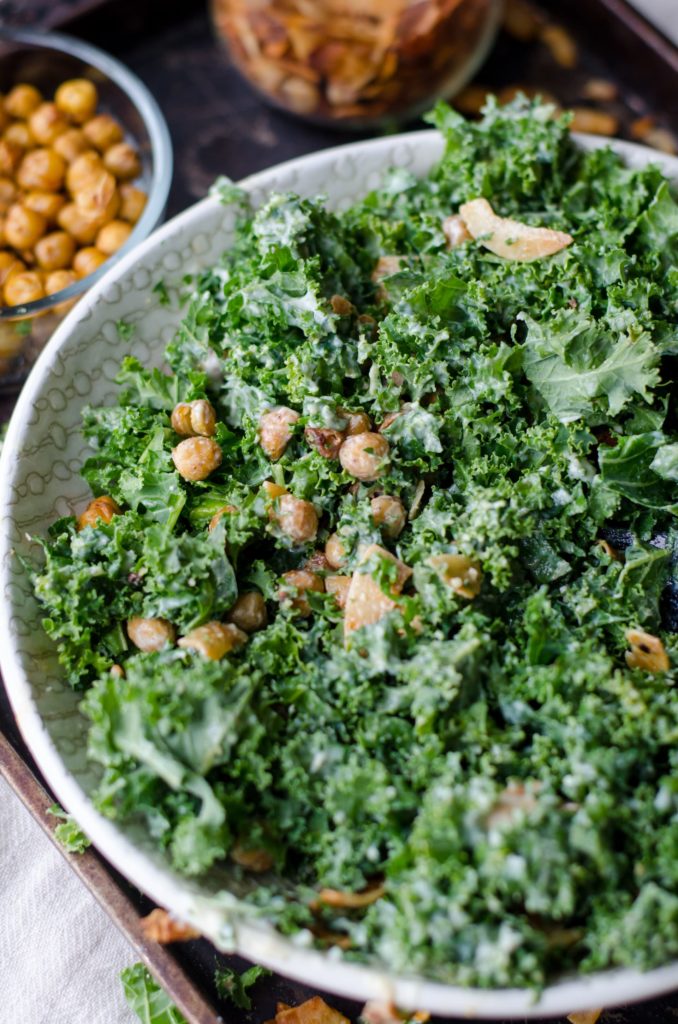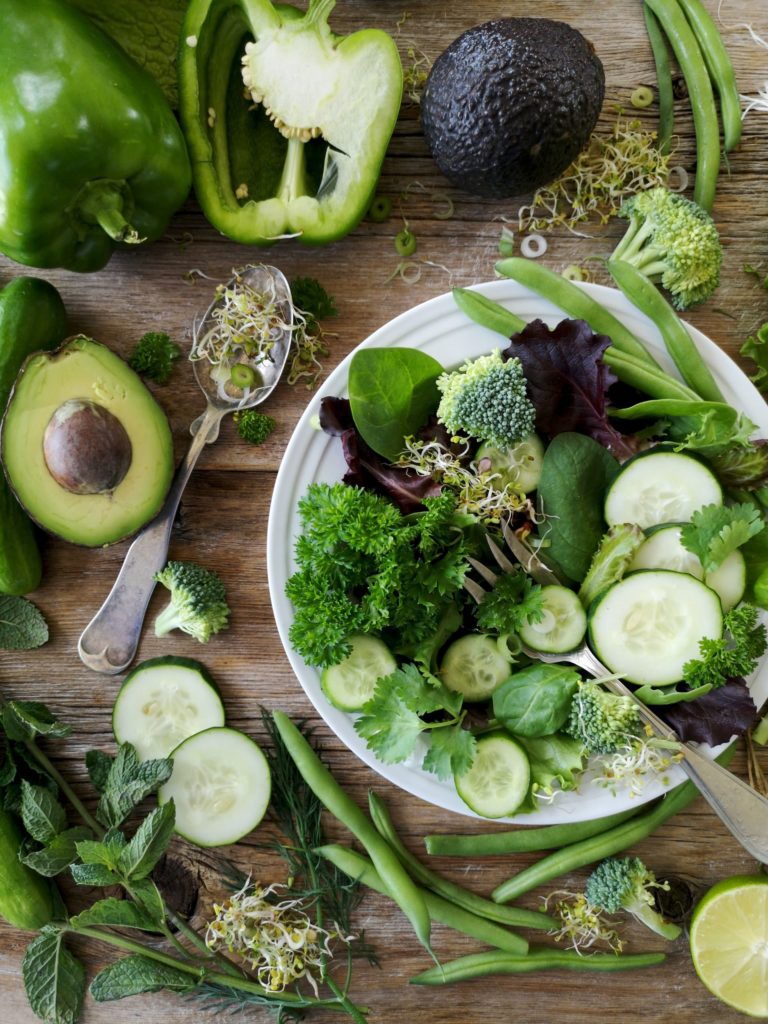In a world where we are going too fast, doing too much, and pushing too hard, the only thing that gets us through is a good night’s sleep. But are you getting one? Our diet has a huge effect on our sleep quality and while you already know to watch your caffeine and not eat too much before bed, did you know that veggies can actually help you sleep? That’s right, they’re not just good for your physical health and wellbeing, they also help you fall asleep and stay asleep.
The first thing that you should know is there are a few key nutrients that can help your body relax and fall into a deep healing sleep. These can be taken as supplements, or as part of your diet, regardless of vegetarian, vegan, or keto restrictions. Let’s break them down.

The Top 3 Nutrients to Help You Sleep
Melatonin
Melatonin is a sleep hormone that is produced when it is dark outside. It helps us fall asleep and stay asleep, and ties our bodies to their circadian rhythms, or the rhythm of the universe. It is produced naturally in the body but sometimes we could use a little extra boost. Luckily, there are some vegetables that contain plenty of melatonin, helping you feel drowsy and improving your sleep quality.
- Mushrooms: Cooked or raw, these delicious snacks can be added into just about anything. Lucky for us they are full of melatonin as well, so you can doze off after eating.

Potassium
Potassium supports our bodies, allowing them to work properly. It links muscles to nerves, and promotes recovery. It also delivers nutrients to cells and clears out waste, leaving you feeling great the next day. It has been strongly linked to sleep quality, particularly facilitating deep sleep, whether in supplement or food form. If you’re looking to add some potassium to your diet, there are plenty of vegetables that can help.
- Dark leafy greens: Spinach, kale, swiss chard, and broccoli boast high amounts of potassium. Whether you mix them into a smoothie, or eat them steamed with your dinner, they will help you drop off at night.
- Baked potatoes, sweet potatoes and yams: Mashed, boiled, or incorporated into your favorite recipes, these vegetables will help you get that deep sleep you’ve been looking for. These and the dark leafy greens are also chock-full of fiber, but more on that later.
Calcium
Calcium has many benefits from strengthening bones, to improving nerve, heart, and muscle functions. It is also one of the most important minerals to foster a healthy sleep cycle. It promotes REM sleep and helps us stay asleep after drifting off, so it’s an incredibly important part of our diet.
- Dark leafy greens: spinach, kale, and swiss chard can be cooked up in a stew or added to your morning frittata to give you a healthy boost and fulfill your daily calcium requirements.
- Okra: Sometimes a little tricky due to the slimy texture, but when fried or roasted, it is a great source of calcium that will contribute to a restful slumber.
- Squash: In curries, in soups, baked, or mashed, squash is as versatile as it is delicious, plus it’s packed with calcium. Try to incorporate it into some of your weekly recipes, and feel the difference.

Fiber: The Unsung Hero of Sleep
Another vital sleep-aid is fiber. Recent studies have shown that fiber is so important that it can determine the extent to which someone gets slow-wave (deep) sleep. Guess where we can find fiber? That’s right, in your veggies.
The only dietary source of fiber is plant-based foods. What separates fiber from other carbohydrates (starches and sugars), is that the digestive enzymes produced by our bodies that digest carbohydrates by breaking them down into simple sugars, are not able to break fiber apart.
Which Veggies Have the Most Fiber?
Starchy Carbs: Carbs such as yuca, green plantain, sweet potato and squash are loaded with fiber that will help improve your gut health and get those Z’s.
Fibrous Veggies: Beets, broccoli, cauliflower and kale are among the highest sources of fiber in veggies. Mix and match to reap the benefits of the other nutrients they contain as well.
If you are already eating plenty of squash, mushrooms, starchy carbs, and leafy greens, but are still suffering from insomnia, the cause could be stress-related, or due to other habits that are disrupting your circadian rhythm.
To clean up your sleep habits, sign up for Your Daily™, your personalized online health coach. She’s got a collection of different exercises and tips to overcome sleep issues, burnout, and autoimmune flare-ups. Join the community today and start feeling better.
Read Next: When stress keeps you up and insomnia stresses you out





